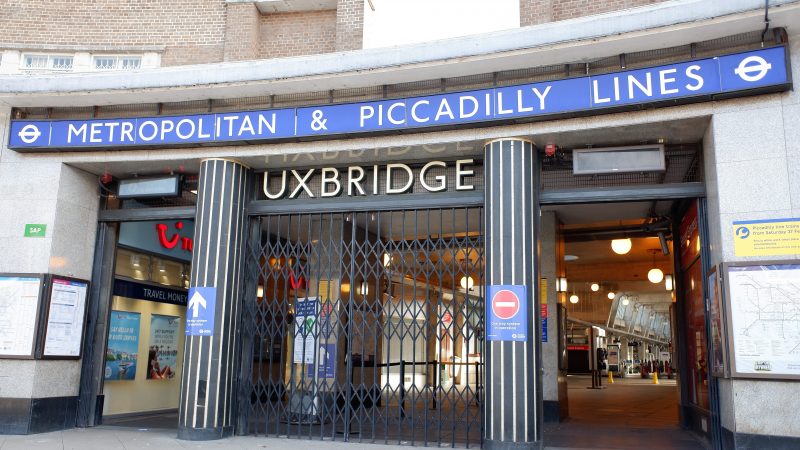
Labour probably won’t do very well at this week’s local elections. We are on track to lose council seats and potentially all four of the mayoralties that are up for grabs. The fact that the Tories won’t do well either is cold comfort. And on top of that, there’s a by-election in Runcorn where Labour are fighting a serious challenge from Reform.
That it won’t be a good night is more or less assured, even a few days out. However: how you react to defeat is almost as important as whether you were defeated or not in the first place. What lessons Labour learns from this set of locals will be vital to the path of this government. Unfortunately, it has a track record of learning the wrong ones.
I am of the view that the first year of Labour government has not gone well (in this, I am entirely unremarkable: 68% of fellow members agree with me). I am also of the view that the problems currently afflicting the party had their first flowering almost two years ago, in the party’s reaction to its defeat at the Uxbridge by-election, a case in point in how not to respond to defeat. The attitudes that first appeared then have put down roots and sprouted, and now threaten to choke the government.
READ MORE: Expert predicts ‘bad night’ with no net Labour gains
In June 2023, Boris Johnson resigned as the MP for Uxbridge and South Ruislip, triggering a by-election on July 20th. At the far end of the Metropolitan tube line, the outer London seat was not one Labour needed to win – it was, after all, considered safe enough to have been the sitting Tory Prime Minister’s seat at the last general election.
The fact that Labour ran the Tories close (falling 495 votes short of a win for their candidate Danny Beales), and on the same night scored a win in the also-improbable Selby and Ainsty by-election, meant that was a good day for the party.
Labour, however, did not act like it. Expectations had been high and Labour had wanted to win. The main reason cited as to why they didn’t was discontent over ULEZ: the ultra low emissions zones policy put into place by London mayor Sadiq Khan.
Scroll to keep reading the story below….
Khan is, of course, a Labour mayor. He was the Labour MP for Tooting and, as transport minister under Gordon Brown, was the first Muslim to attend cabinet. As mayor, air quality has been one of the things he has most concerned himself with (he’s even written a book about it), and the ULEZ policy one of his key weapons in the fight to improve the city’s air. Its extension to outer London boroughs (like Hillingdon, in which Uxbridge sits) was very unpopular and scheduled for August 2023. During the by-election campaign, Beales spoke against the expansion (“it’s not the right time”): this was understood as perhaps a little sharper towards a Labour mayor than perhaps entirely necessary, but generally par for the course when attempting to win a by-election.
It was after the fact, however, that things intensified. Beales, speaking at the national policy forum (NPF) a few days later, called it a “bad policy”, saying of his campaign that “a single policy cut us off at the knees. This isn’t complicated. You cannot tell working people you are laser-focused on the cost of living, on the difficulties facing them, on making life easier and then also penalise them, simply for driving their car to work”.
Speaking to the press Keir Starmer said ULEZ was the reason for defeat, adding “we’ve all got to reflect on that, including the mayor”. At the NPF, Starmer said Labour needed to “learn the lesson” following the result.
READ MORE: Analysis: What’s a good night for Labour?
The lesson, to my mind, is this: you cannot please all of the people all of the time. The existence of target seats implies that we do have an order of preference in how much we are willing to do (how much resource put in, how much broader policy tailored to local needs) for different constituencies.
Uxbridge, which did not go red in 1997, is like all seats desirable to win – but not essential. This was also seemingly the lesson Khan drew from it, defending ULEZ and noting that it had “never been Labour in my lifetime” in response to criticisms. The whole thing was internally messy, hinting at rifts between City Hall and the leader’s office. No one, not least the mayor of London, likes to be told to “reflect”.
The lesson the leader’s office seemed to draw, however, was that ULEZ was politically unpopular (in a place Labour was never particularly popular) and therefore was the problem. Importantly, it was also a problem in a particular direction: too environmental, too left. This diagnosis doesn’t take into account whether ULEZ does what it’s supposed to. Which it does: we know now that it drove down air pollution dramatically (including in boroughs that strongly opposed it). It may not be universally popular but it is good policy and it saves lives. It is the kind of thing Labour should be in office to do.
READ MORE: ‘What went wrong in Uxbridge: a view from the constituency Labour party’
Unfortunately, the lesson that you need to move to the right (and antagonise your own party in the process), regardless of policy outcomes, seems to have been taken up wholeheartedly by the party in the years since. It outlives even success in Uxbridge, which came last July (and in spite of the fact that ULEZ was expanded per Khan’s original plans).
Another hallmark is a striking reluctance to make the argument for anything that could end up on a Tory or Reform attack leaflet (trying to reduce legal migration when you purport to want growth, and for the university sector not to collapse, for example). After all, Starmer said post-Uxbridge, it was a sign of“something very wrong” for a policy to be on “each and every Tory leaflet”.

But is it, though? Politics is ultimately about sides, choices, decisions, exclusions. If the promised “insurgent government” and governing in campaign mode entails anything more than chasing a sliver of hard to please voters who’ll probably tell you to get lost anyway, I’ve yet to see it.
Later this week, Labour will lose votes to the Greens and the Lib Dems and to people staying home and some to Reform (although, crucially, a new report out this week from Persuasion UK notes that “historically speaking, there is not much overlap between the Reform and Labour voters”, and that Reform-curious Labour voters are not that interested in anti-net zero messaging). As the Economist recently highlighted, we’re no longer in a two-party system, and should stop acting like we are. In this world “tactical voting, the grease that keeps British democracy turning, becomes close to impossible”, making a pitch to the right even less viable.
When they have somewhere else to go, you need to pitch to your own people first. Nowhere near enough work has been done to win back Muslim voters who took their votes elsewhere at the last election, angry at the party’s stance on Gaza. Given recet events, I would hazard that Labour is not likely to improve its standing with LGBT voters later this week, either. But that’s what happens when you’re always trying to win the Uxbridge by-election.
Read our coverage of the 2025 local elections:
- Where’s Keir? PM barely features in Labour party election broadcasts for the locals
- Hull and East Yorkshire mayor election: Labour candidate spars with Reform’s boxing star in UK’s most disillusioned city
- Cambridgeshire & Peterborough mayor election: Nik Johnson on why he’s standing down and Anna Smith on knife-edge Labour-Tory fight to replace him
- The meme elections: Labour’s social media pivot to take fight to Farage
- Inside the West of England mayor campaign, from Tory and Green threats to Dan Norris and low voter awareness
- Runcorn and Helsby: At least 150 Labour MPs visit – but Keir Starmer ain’t one
- Runcorn and Helsby interview: Labour candidate Karen Shore on Reform, the NHS and closing asylum hotels
For more from LabourList, subscribe to our daily newsletter roundup of all things Labour – and follow us on Bluesky, WhatsApp, Threads, X or Facebook.
- SHARE: If you have anything to share that we should be looking into or publishing about this story – or any other topic involving Labour– contact us (strictly anonymously if you wish) at [email protected].
- SUBSCRIBE: Sign up to LabourList’s morning email here for the best briefing on everything Labour, every weekday morning.
- DONATE: If you value our work, please chip in a few pounds a week and become one of our supporters, helping sustain and expand our coverage.
- PARTNER: If you or your organisation might be interested in partnering with us on sponsored events or projects, email [email protected].
- ADVERTISE: If your organisation would like to advertise or run sponsored pieces on LabourList‘s daily newsletter or website, contact our exclusive ad partners Total Politics at [email protected].





More from LabourList
Letters to the Editor – week ending 15th February 2026
‘Labour council candidates – it’s tough, but all is not lost’
‘Labour won’t stop the far right by changing leaders — only by proving what the left can deliver’